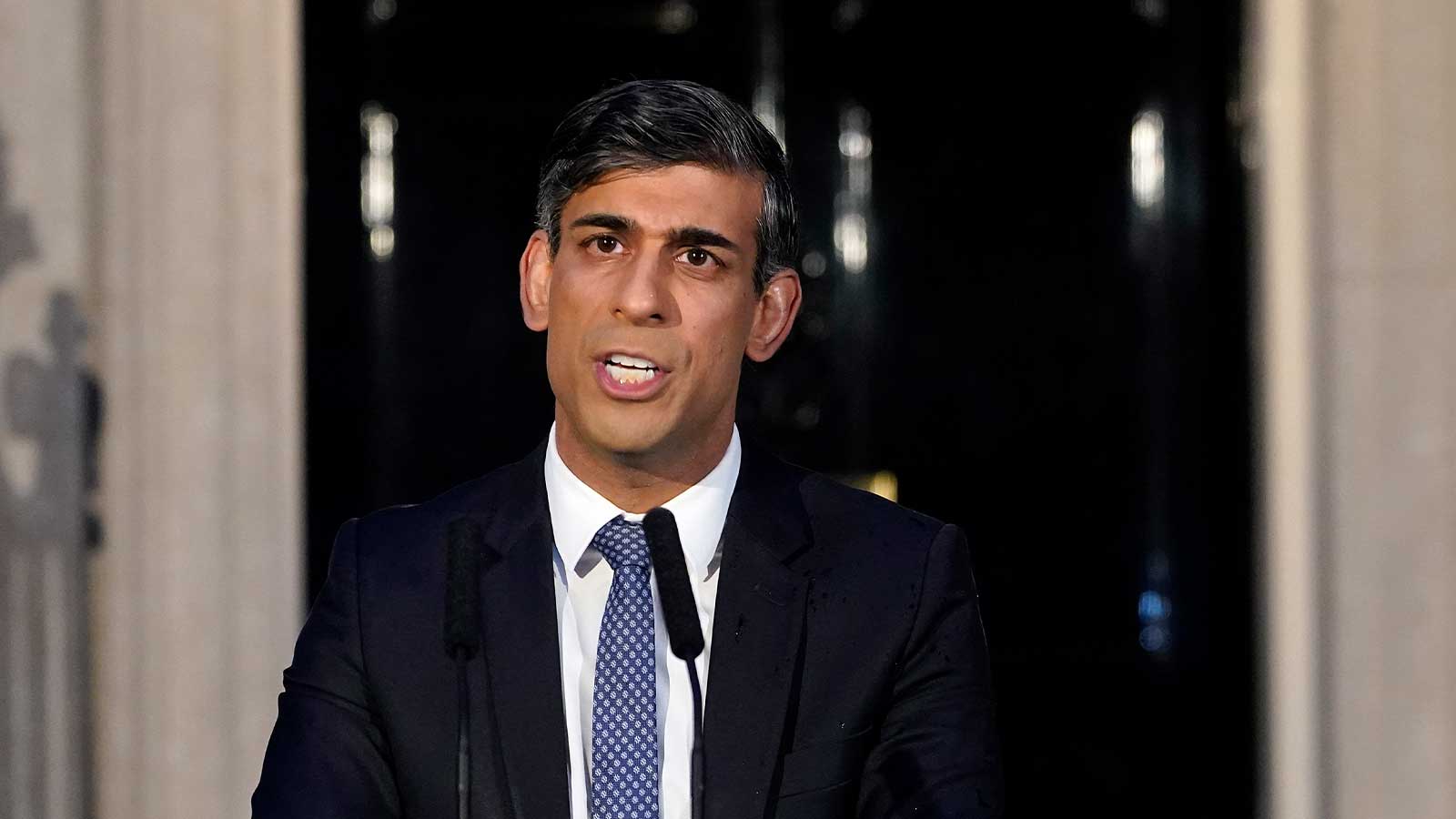Britain will leave the European Convention on Human Rights if it continues to hinder the government’s attempts to stop illegal immigration, Prime Minister Rishi Sunak has said.
For the first time, the Conservative Party leader has opened the door to Britain revoking its membership of the international treaty, suggesting he may potential side with the right of his parliamentary party, who believe a failure to control immigration has been a fundamental factor in plummeting public opinion ahead of the upcoming election.
Speaking with The Sun’s political editor Harry Cole on the newspaper’s new show, Never Mind the Ballots, Sunak said “border security and controlling illegal migration is more important than our membership of any foreign court.”
“When people jump the queue and come here illegally, and then put pressure on public services and we’re not able to remove them in the way that we want to, that is not right. It offends my sense of fairness and that sense of fairness is central to our character,” the prime minister said in relation to the ongoing crisis on England’s southern shores.
Illegal immigration into Britain is on the rise once more after a brief lull toward the end of last year, with illegal border crossings up 43 percent this year compared with the same period last year. Another 442 people in nine small boats arrived in Kent on Easter Sunday to further compound the issue facing a governing party that has historically championed law and order.
[pp id=112178]
Sunak’s answer has long been his Rwanda policy, which would see new arrivals without the right to stay in Britain removed to the African nation if they cannot be returned home. However, the legislation was contested, and an adverse Supreme Court ruling last year resulted in the need to push through further laws confirming Rwanda as a “safe country,” a bill that is currently being held up in the House of Lords.
“I want to be able to make it the case, unequivocally, that if you come to our country illegally, you won’t be able to stay. That’s why I’m doing everything I can to get this bill through parliament so that we can start sending people to Rwanda and once we get that done, you will see that people will stop coming,” Sunak told The Sun.
When questioned specifically on the potential thorn that is the ECHR, the U.K. prime minister insisted he was confident that the government’s plan is “compliant with all our intentional obligations, including the ECHR,” but reserved the right to leave the treaty should it come to it.
He said controlling Britain’s borders was “fundamental to our sovereignty as a country,” reiterating several times that tackling illegal immigration was “more important than our membership of any foreign court.”
The Conservative Party is facing a seemingly impossible task of holding onto power at the next election, which Sunak must call before the end of January next year, with voters who backed the party in the 2019 election deserting it in three directions.
First, some working-class voters predominantly in the north of England who supported then Prime Minister Boris Johnson’s pledge to “Get Brexit Done” have returned to their Labour roots. Others have grown tired of broken promises on immigration and expressed concern over high public spending on Net Zero and have jumped ship to the fledgling Reform UK, a right-wing group endorsed by conservative broadcaster Nigel Farage. Meanwhile, many are simply intending to stay at home on election day due to their growing disillusionment with Sunak’s administration.
The polls make grim reading for the Conservative parliamentary party, which is currently averaging around 20 percent, less than half that of Sir Keir Starmer’s Labour Party and only just above Reform UK which is enjoying its best-ever polling results in the mid-teens.
One Conservative MP told Remix News the party risks coming third in a two-horse race, referencing the fact that Reform UK is now polling higher than the Conservatives in Wales.
Another source close to leading members of the government confirmed to us that over 30 letters of no-confidence in Rishi Sunak have been submitted to Sir Graham Brady, chairman of the 1922 Committee that oversees Conservative leadership contests, which could perhaps explain the prime minister’s change in tack on the ECHR question.
Other media outlets have quoted lawmakers including Sir Simon Clarke, former chief secretary to the Treasury, who claim that only a “couple more letters” are required to initiate a vote of no confidence.
Currently, a total of 53 letters from Conservative MPs is required to trigger a vote in the House of Commons which, if lost, would bring down the prime minister and force a leadership election just months before the election.





